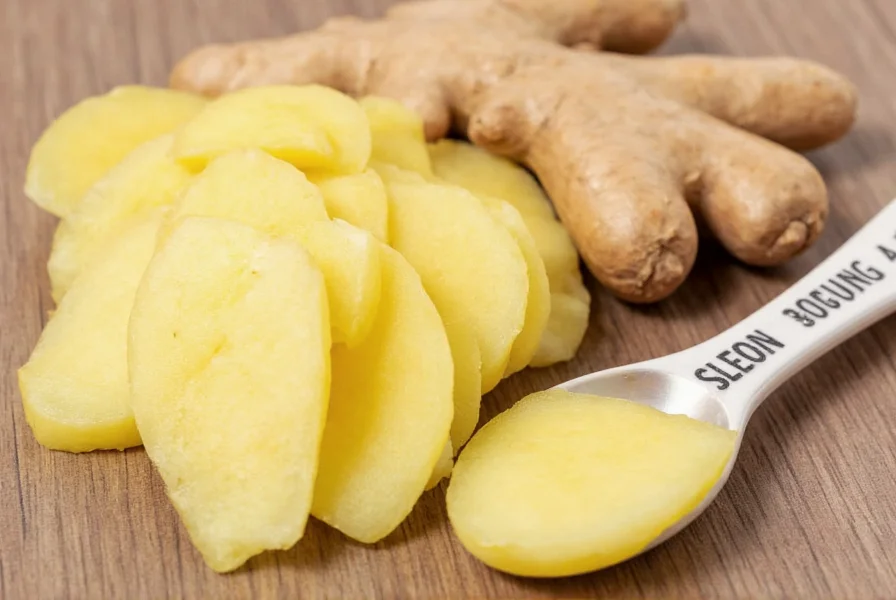Based on current scientific evidence, ginger may provide mild relief for some constipation symptoms due to its digestive-stimulating properties, but it's not a proven primary treatment. Research shows ginger can accelerate gastric emptying and stimulate digestive enzymes, which might indirectly support bowel regularity. However, no major clinical trials specifically confirm ginger as an effective constipation remedy, and results vary significantly between individuals.
Constipation affects millions worldwide, with approximately 16% of adults experiencing chronic symptoms. When conventional treatments feel too harsh, many seek natural alternatives like ginger. This comprehensive analysis examines what science actually says about ginger's role in digestive health and whether it deserves a place in your constipation relief toolkit.
Understanding Constipation and Digestive Health
Constipation occurs when bowel movements become infrequent (fewer than three per week) or difficult to pass. Common causes include inadequate fiber intake, dehydration, medication side effects, and underlying medical conditions. The digestive system relies on coordinated muscle contractions called peristalsis to move waste through the intestines. When this process slows, constipation develops.
Ginger (Zingiber officinale) has been used for centuries in traditional medicine systems across Asia for various digestive complaints. Its active compounds, particularly gingerols and shogaols, interact with the gastrointestinal tract in ways that might influence bowel function.
How Ginger Might Affect Digestion
Ginger's potential digestive benefits stem from several physiological mechanisms:
- Gastric motility enhancement - Studies show ginger can accelerate gastric emptying by up to 25%, potentially reducing transit time through the digestive system
- Anti-inflammatory properties - Chronic inflammation can disrupt normal bowel function, and ginger's compounds may help reduce this inflammation
- Stimulation of digestive enzymes - Ginger appears to increase production of enzymes that break down food
- Modulation of gut microbiota - Emerging research suggests ginger may positively influence beneficial gut bacteria
| Mechanism | Scientific Evidence Level | Potential Impact on Constipation |
|---|---|---|
| Gastric emptying acceleration | Strong (multiple human studies) | May reduce overall transit time |
| Anti-inflammatory effects | Moderate (animal and in vitro studies) | Potential reduction in gut inflammation |
| Enzyme stimulation | Limited (preliminary studies) | Theoretical improvement in digestion |
| Gut microbiome influence | Emerging (early research) | Potential indirect benefits |
What Research Says About Ginger and Constipation
While ginger shows promise for general digestive health, specific evidence for constipation relief remains limited. A 2020 review published in Nutrients analyzed multiple studies on ginger's gastrointestinal effects and found:
- Ginger significantly improved symptoms in patients with functional dyspepsia (indigestion)
- It demonstrated effectiveness in reducing nausea and vomiting
- Research specifically targeting constipation was notably scarce
Most evidence supporting ginger for constipation comes from:
- Anecdotal reports from traditional medicine practices
- Studies examining ginger's effects on overall digestive function
- Research on ginger's impact on related conditions like irritable bowel syndrome (IBS)
A 2019 clinical trial in the Journal of Gastroenterology and Hepatology found ginger supplementation improved overall digestive symptoms in IBS patients, but constipation-specific results weren't isolated. This highlights a significant gap in the research - while ginger appears beneficial for general digestive health, its specific efficacy for constipation requires more targeted investigation.

Practical Application: Using Ginger for Digestive Support
If you're considering ginger as part of your constipation management strategy, here's how to use it effectively:
Recommended Forms and Dosages
- Fresh ginger tea - 1-2 inches of fresh ginger root boiled in 2 cups water for 10-15 minutes, consumed 1-2 times daily
- Ginger supplements - 500-1500 mg daily, standardized to contain 5% gingerols (consult your physician first)
- Raw ginger - 1-2 grams of fresh ginger consumed before meals
Optimal Timing for Maximum Benefit
For potential digestive benefits, consume ginger:
- 30 minutes before meals to stimulate digestive enzyme production
- In the morning to support natural circadian rhythm of digestion
- Avoid consuming large amounts immediately before bed as it may cause heartburn
Combination Approaches for Better Results
Ginger works best as part of a comprehensive constipation management plan:
- Combine ginger tea with warm lemon water for enhanced digestive stimulation
- Pair ginger consumption with increased fiber intake and adequate hydration
- Consider ginger alongside probiotic-rich foods for comprehensive gut support
Important Considerations and Potential Side Effects
While generally safe, ginger isn't appropriate for everyone. Consider these factors before using ginger for constipation relief:
Who Should Avoid Ginger
- Individuals taking blood thinners (ginger has mild anticoagulant properties)
- People with gallstone disease (ginger may increase bile production)
- Those with gastroesophageal reflux disease (GERD) as it may worsen symptoms
- Pregnant women should consult their healthcare provider before regular use
Common Side Effects
When used appropriately, ginger is well-tolerated by most people. Possible mild side effects include:
- Heartburn or acid reflux
- Mouth irritation
- Diarrhea (especially at higher doses)
- Increased menstrual bleeding in some women

Ginger vs. Other Natural Constipation Remedies
How does ginger compare to other popular natural approaches for constipation relief?
| Remedy | Onset of Action | Evidence Strength | Key Benefits | Limitations |
|---|---|---|---|---|
| Ginger | 1-3 days | Moderate for digestion, limited for constipation | Stimulates digestion, anti-inflammatory | Results vary, not primary treatment |
| Prunes | 6-12 hours | Strong clinical evidence | High fiber, natural laxative effect | High sugar content, may cause gas |
| Psyllium husk | 12-72 hours | Very strong evidence | Significant fiber boost, well-studied | Requires ample water, may cause bloating |
| Magnesium citrate | 30 min-6 hours | Strong evidence | Rapid action, osmotic effect | Can cause cramping, not for regular use |
Ginger works best as a complementary approach rather than a standalone solution for constipation. While prunes and fiber supplements have stronger evidence specifically for constipation relief, ginger may enhance overall digestive function when used alongside these primary treatments.
When to Seek Medical Advice
While occasional constipation is common and often manageable with lifestyle changes, certain symptoms warrant medical evaluation:
- Constipation lasting longer than 3 weeks despite home remedies
- Blood in stool or black, tarry stools
- Unexplained weight loss accompanying constipation
- Severe abdominal pain or bloating
- Constipation alternating with diarrhea
These symptoms could indicate underlying conditions requiring professional diagnosis and treatment. Never use ginger or other natural remedies to avoid seeking necessary medical care for persistent digestive issues.
Creating a Comprehensive Constipation Management Plan
For optimal digestive health, combine ginger with evidence-based approaches:
- Maintain adequate hydration (at least 8 glasses of water daily)
- Increase dietary fiber gradually to 25-30 grams per day
- Establish regular bathroom habits and don't ignore urges
- Incorporate daily physical activity (even short walks help)
- Consider ginger as part of your morning routine for digestive support
- Track your symptoms to identify patterns and effective remedies
Remember that digestive health is highly individual. What works for one person may not work for another, so patience and careful observation are key when developing your personalized approach to managing constipation.
Conclusion: Ginger's Role in Constipation Management
Ginger shows promise as a supportive element in digestive health due to its ability to stimulate gastric motility and reduce inflammation. While not a proven primary treatment for constipation, it may provide mild relief when incorporated into a comprehensive approach that includes adequate hydration, fiber, and physical activity. Current research supports ginger's general digestive benefits but lacks specific, robust evidence for constipation relief. As with any natural remedy, manage expectations, monitor your response, and consult healthcare professionals for persistent digestive concerns.
Frequently Asked Questions
How quickly does ginger work for constipation relief?
Ginger typically shows effects within 1-3 days when used consistently. Unlike stimulant laxatives that work within hours, ginger supports natural digestive processes gradually. Most people notice subtle improvements in overall digestion rather than immediate bowel movement changes. Consistent daily use yields better results than occasional consumption.
What's the most effective way to prepare ginger for constipation?
Fresh ginger tea provides the most bioavailable compounds. Peel and slice 1-2 inches of fresh ginger root, boil in 2 cups of water for 10-15 minutes, then strain. Consuming this warm tea 30 minutes before breakfast and dinner maximizes digestive benefits. Avoid over-boiling, which can degrade active compounds. Powdered ginger works but contains lower concentrations of beneficial compounds compared to fresh root.
Can ginger make constipation worse for some people?
Yes, ginger may worsen symptoms for certain individuals. People with irritable bowel syndrome (IBS) with predominant diarrhea (IBS-D) might experience increased urgency. Those with gastroesophageal reflux disease (GERD) could develop heartburn that indirectly affects digestion. Ginger's stimulating effect on digestion might cause cramping in sensitive individuals. Start with small amounts (1/4 teaspoon of grated ginger) to assess tolerance before increasing dosage.
How does ginger compare to other natural remedies for constipation?
Ginger works differently than fiber-based remedies like prunes or psyllium. While prunes provide insoluble fiber that adds bulk, ginger primarily stimulates digestive motility. It's generally less potent than dedicated laxatives but causes fewer side effects like cramping. Ginger works best as a complementary approach alongside increased fiber and hydration, rather than a standalone solution. For mild, occasional constipation, ginger may provide sufficient support, but for chronic cases, it should be part of a broader strategy.
Is ginger safe for long-term use as a constipation remedy?
Ginger is generally safe for regular consumption at culinary doses (up to 4 grams daily). However, using it specifically as a constipation remedy long-term without addressing underlying causes isn't recommended. Chronic constipation often requires identifying and treating root causes rather than relying on symptomatic relief. If you need ginger regularly for more than 3-4 weeks to maintain bowel regularity, consult a healthcare provider to rule out underlying conditions. Long-term high-dose supplementation (beyond 1.5 grams daily) should be medically supervised.










 浙公网安备
33010002000092号
浙公网安备
33010002000092号 浙B2-20120091-4
浙B2-20120091-4